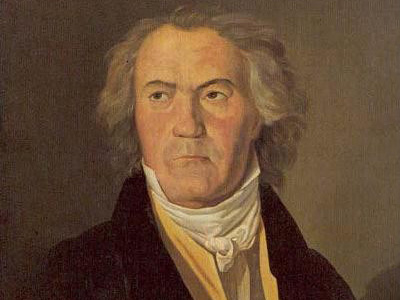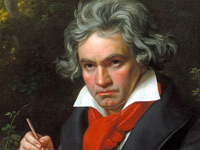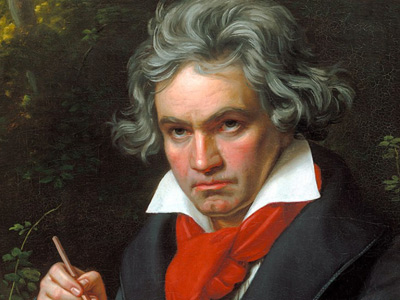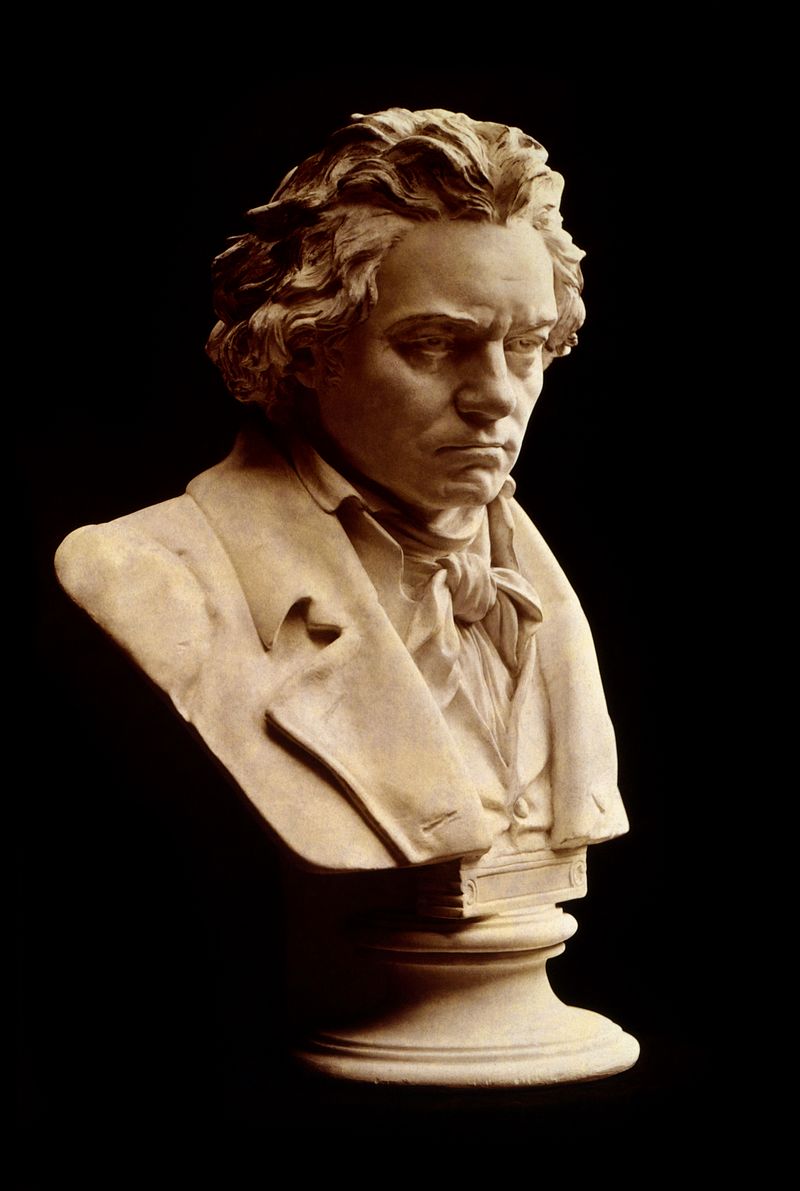Ludwig van Beethoven (1770-1827)

Musical maturity
Beethoven composed his first six string quartets (Op. 18) between 1798 and 1800 (commissioned by, and dedicated to, Prince Lobkowitz). They were published in 1801. With premieres of his First and Second Symphonies in 1800 and 1803, Beethoven became regarded as one of the most important of a generation of young composers following Haydn and Mozart. He also continued to write in other forms, turning out widely known piano sonatas like the "Pathétique" sonata (Op. 13), which Cooper describes as "surpass[ing] any of his previous compositions, in strength of character, depth of emotion, level of originality, and ingenuity of motivic and tonal manipulation." He also completed his Septet (Op. 20) in 1799, which was one of his most popular works during his lifetime.
For the premiere of his First Symphony, Beethoven hired the Burgtheater on 2 April 1800, and staged an extensive programme of music, including works by Haydn and Mozart, as well as his Septet, the First Symphony, and one of his piano concertos (the latter three works all then unpublished). The concert, which the Allgemeine musikalische Zeitung described as "the most interesting concert in a long time," was not without difficulties; among the criticisms was that "the players did not bother to pay any attention to the soloist."
Mozart and Haydn were undeniable influences. For example, Beethoven's quintet for piano and winds is said to bear a strong resemblance to Mozart's work for the same configuration, albeit with his own distinctive touches. But Beethoven's melodies, musical development, use of modulation and texture, and characterisation of emotion all set him apart from his influences, and heightened the impact some of his early works made when they were first published. By the end of 1800, Beethoven and his music were already much in demand from patrons and publishers.
In May 1799, Beethoven taught piano to the daughters of Hungarian Countess Anna Brunsvik. During this time, Beethoven fell in love with the younger daughter Josephine who has therefore been identified as one of the more likely candidates for the addressee of his letter to the "Immortal Beloved" (in 1812). Shortly after these lessons, Josephine was married to Count Josef Deym. Beethoven was a regular visitor at their house, continuing to teach Josephine, and playing at parties and concerts. Her marriage was by all accounts happy (despite initial financial problems), and the couple had four children. Her relationship with Beethoven intensified after Deym died suddenly in 1804.
Beethoven had few other students. From 1801 to 1805, he tutored Ferdinand Ries, who went on to become a composer and later wrote Beethoven remembered, a book about their encounters. The young Carl Czerny studied with Beethoven from 1801 to 1803. Czerny went on to become a renowned music teacher himself, instructing Franz Liszt, and gave on 11 February 1812 the Vienna premiere of Beethoven's fifth piano concerto (the "Emperor").
Beethoven's compositions between 1800 and 1802 were dominated by two large-scale orchestral works, although he continued to produce other important works such as the piano sonata Sonata quasi una fantasia known as the "Moonlight Sonata". In the spring of 1801 he completed The Creatures of Prometheus, a ballet. The work received numerous performances in 1801 and 1802, and Beethoven rushed to publish a piano arrangement to capitalise on its early popularity. In the spring of 1802 he completed the Second Symphony, intended for performance at a concert that was cancelled. The symphony received its premiere instead at a subscription concert in April 1803 at the Theater an der Wien, where Beethoven had been appointed composer in residence. In addition to the Second Symphony, the concert also featured the First Symphony, the Third Piano Concerto, and the oratorio Christ on the Mount of Olives. Reviews were mixed, but the concert was a financial success; Beethoven was able to charge three times the cost of a typical concert ticket.
Beethoven's business dealings with publishers also began to improve in 1802 when his brother Kaspar, who had previously assisted him casually, began to assume a larger role in the management of his affairs. In addition to negotiating higher prices for recently composed works, Kaspar also began selling some of Beethoven's earlier unpublished works, and encouraged Beethoven (against the latter's preference) to also make arrangements and transcriptions of his more popular works for other instrument combinations. Beethoven acceded to these requests, as he could not prevent publishers from hiring others to do similar arrangements of his works.
HISTORY

RESOURCES
This article uses material from the Wikipedia article "Ludwig van Beethoven (1770-1827)", which is released under the Creative Commons Attribution-Share-Alike License 3.0.
© Stories Preschool. All Rights Reserved.










